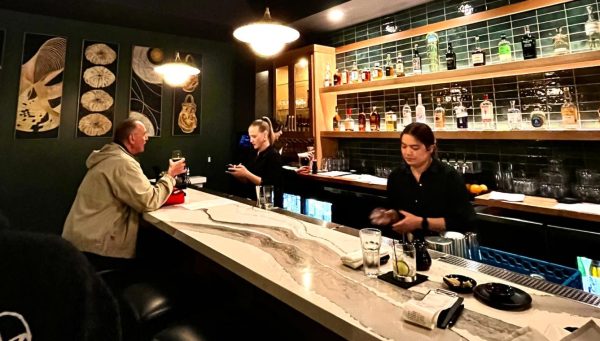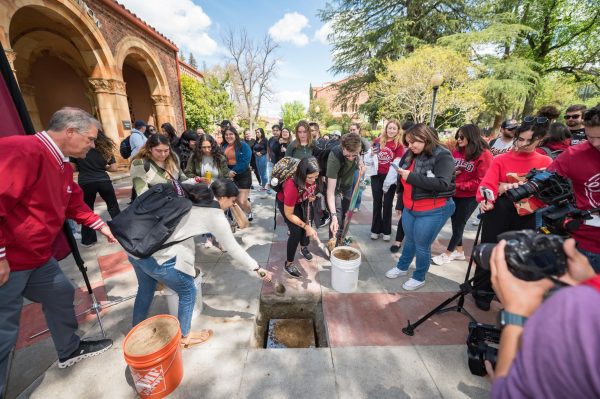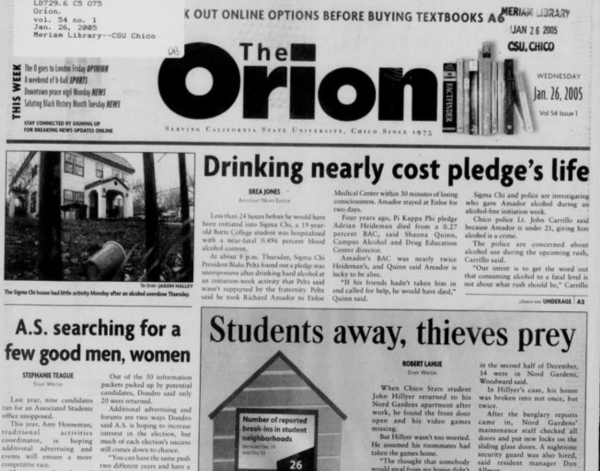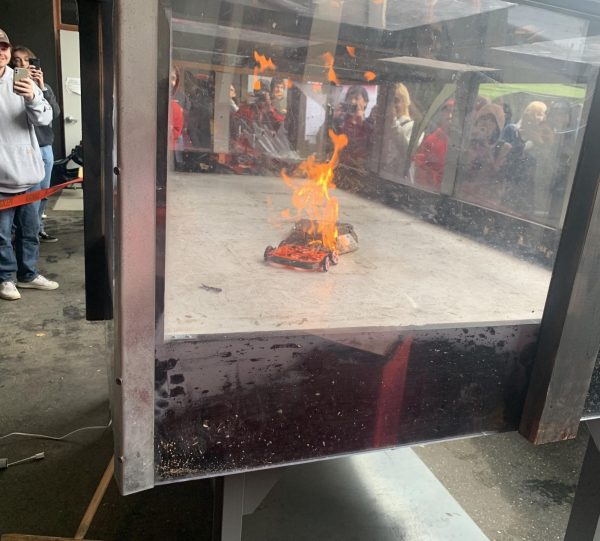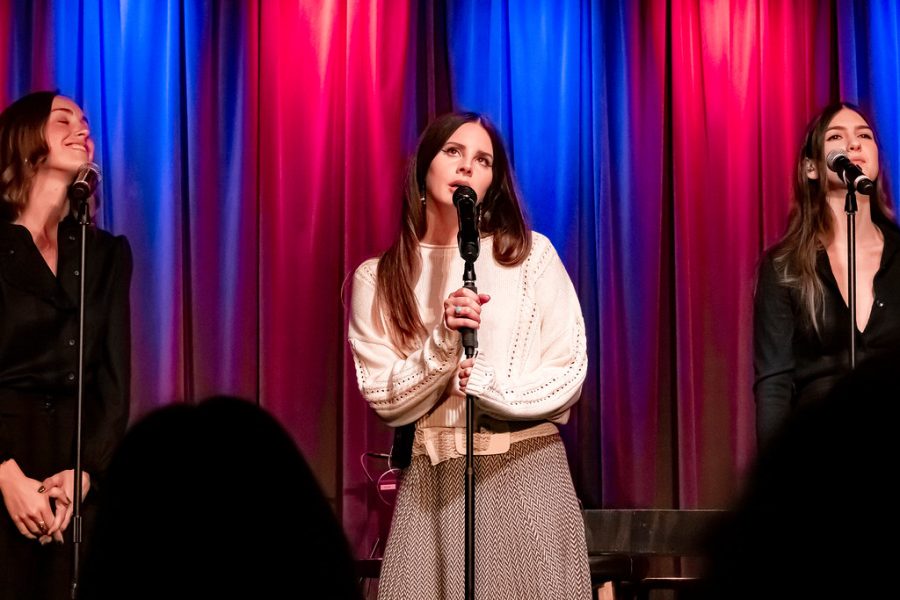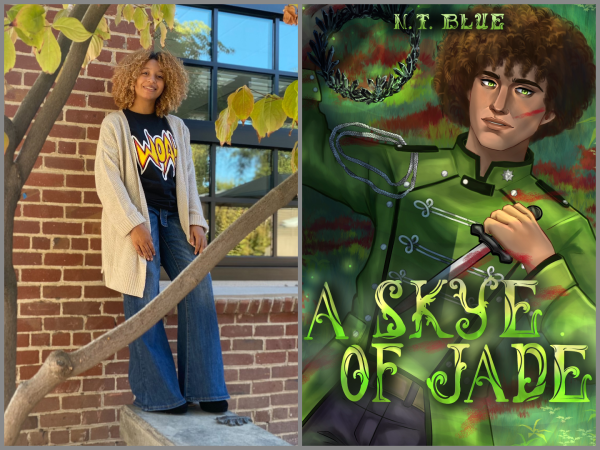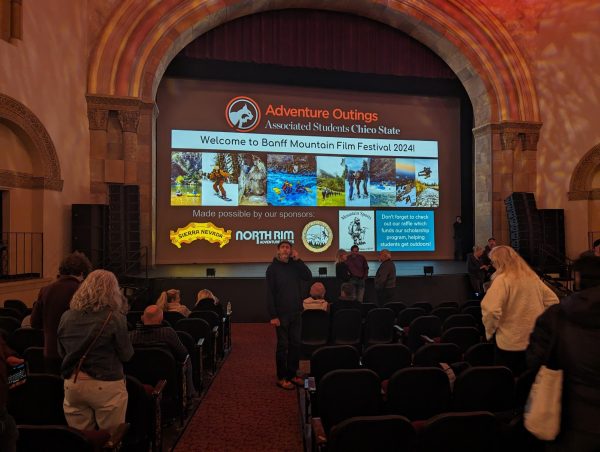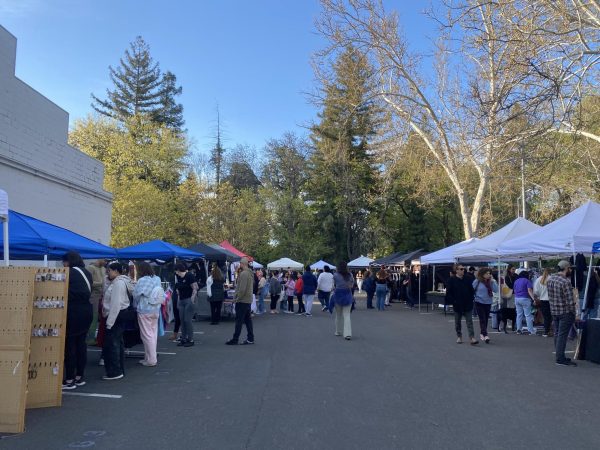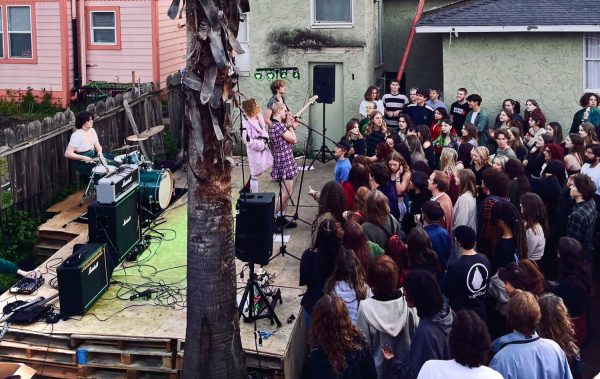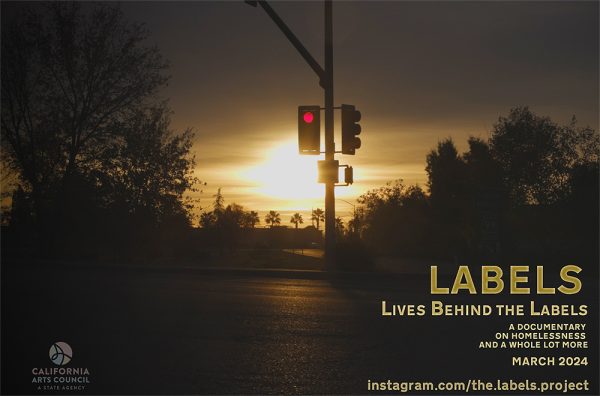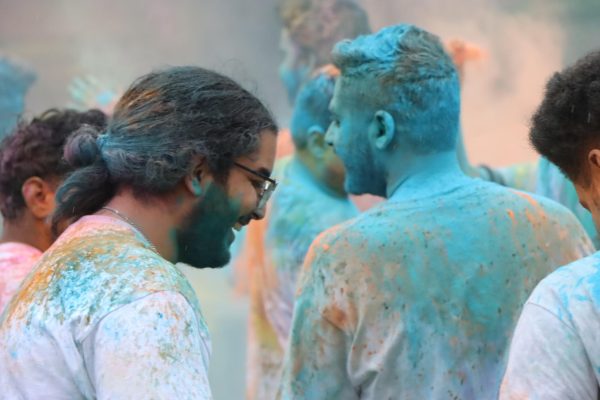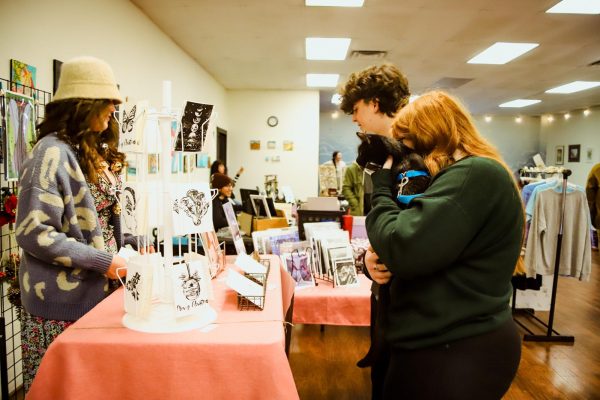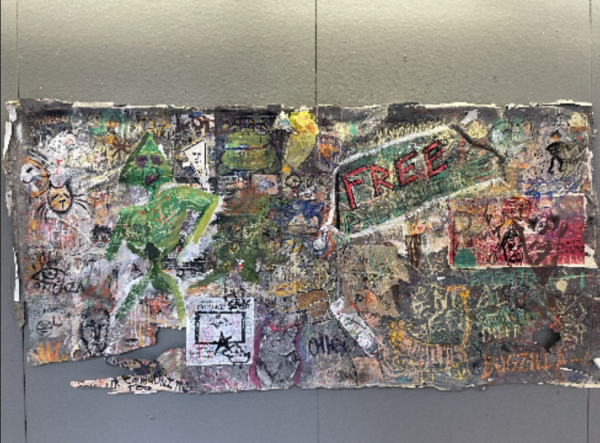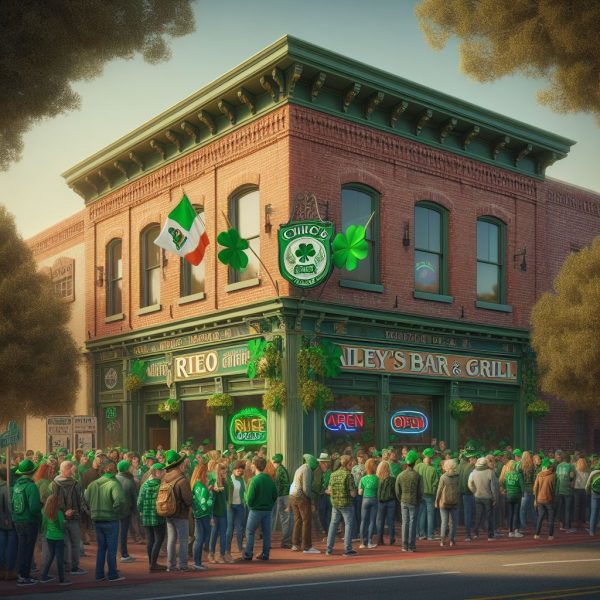‘Blue Banisters’: an alluring glimpse into Lana Del Rey’s mind
“Lana Del Rey @ Grammy Museum 10/13/2019” by jus10h is licensed with CC BY 2.0. To view a copy of this license, visit https://creativecommons.org/licenses/by/2.0/
Lana Del Rey returned to the world of music on Oct. 22 with her eighth studio album “Blue Banisters.” Known for her poetic lyrics, mystifying vocals, dreamy voice and melancholic sounds, Del Rey’s newest record exceeds all the expectations for the elements that she is known for while adding a new dimension to her sound.
Del Rey rose to fame in 2012 after the release of her second studio album “Born to Die.” This work put her on the map for upcoming artists as it became the fifth best selling record of the year. The breakthrough album spent 407 weeks charting on the Billboard 100 and peaked at number two.
Over the past nine years, Del Rey’s production has experimented with indie, pop, hip-hop and electronic beats. However, her past two albums “Norman F***ing Rockwell” and “Chemtrails Over the Country Club” are known for a more soft, delicate and mature tone. Yet, “Blue Banisters” manages to blend her newer sound with trap beats that fuse the hip-hop influence that can be found in her older works.
The award winning singer songwriter kicks off the album with “Text Book,” a soft, gentle and introspective opening that showcases Del Rey’s classic imaginative and vivid lyrics. This song explores troubled relationships, complicated loves and even activism. She illustrates her troubled relationship with her father, calling it “textbook” or a common story of the wanting of him to be there for her.
The chorus reveals her longing for him as she sings, “By the Old Man River, and you saw who I am/ God I wish I was with my father/ He could see us in all our splendor.” The second verse has Del Rey questioning her partner if she were to dye her hair blonde and the possibility of getting their old love back. The verse concludes with her recognizing that the relationship is at its end. “Text Book” ends with an homage to the 1984 song “Old Man River” by Howard Keel.
“Interlude – The Trio” is the fourth track and transitions the first part of her album, which has an idyllic feeling and sound, to melodies that incorporate more pop and hip-hop beats that hold blends her songs “Summer Bummer” off of 2017’s album “Lust for Life” and her 2014 album’s title track “Ultraviolence.” According to genius.com, this instrumental interlude includes Ennio Morricone’s “The Trio,” from the 1966 Clint Eastwood western, “The Good, the Bad, and the Ugly.” The music video for “Arcadia,” the song before the interlude incorporates it as the outro.
The eighth track “Violets for Roses” is expressive and moving as it narrates the struggle of a partner coming between a dream and happiness. The word choice is more similar poetry than song lyrics. For the pre-chorus Del Rey writes, “Ever since I fell out of love with you, I fell back in love with the city/ Like the Paramount sign sparkling/ Sparkling just for me.” This ties Del Rey personally to her lyrics as it describes her rediscovering her passion and the place she loves, Hollywood. The chorus says, “You made me trade my violets for roses” violets symbolize truth and loyalty while roses are the flowers of love, this depicts her trading her truth and ambitions for love, which she views as an undesirable request.
A familiar theme of an untrustworthy partner appears in this work as she sings about a person who pretends to be someone they’re not on the tenth track “Thunder.” The sound starts slower as just a piano plays. Del Rey sings, “You roll like thunder as you come crashin’ in/ Town ain’t been the same since you left with all your friends.” The pre-chorus mentions the 2003 hit “Mr. Brightside” by the Killers as Del Rey portrays that she knows her partner under the mask that they put on for others, “But I know what you’re like when the party ends.”
The beat picks up as drums, strings and bass guitar accompany her captivating vocals. Despite the complicated subject, this song is one of the more upbeat on the album. In the bridge, her partner embodies a flame and she pleads for them to keep her alive and burning. In the second chorus she warns, “If hello just means goodbye then, honey, better walk away.”
The finale of the album “Sweet Carolina” is a love letter to Del Rey’s sister Caroline “Chuck” Grant and her niece. This piano ballad demonstrates Del Rey’s talent not just as a songwriter, but as a singer. The chorus features her ability to hit falsetto notes. “Baby blues, baby blues/ if things ever go wrong/ Just know this is your song/ It’ll live on and on, way past me and you” and “You’ve got us, we’ve got you/ So there’s nothing to lose and we love you” Del Rey reassures her niece of the love her family holds for each other.
This album ends with “So don’t write me a letter/ I’ll always be right here/ Closer to you than your next breath, my dear” a meaningful message that the listeners can connect to a special relationship in their lives.
Del Rey proves that she creates music unlike any other artist. “Blue Banisters” proves that her work can grow and evolve while incorporating influences that made her a household name.
Carrington Power can be reached at [email protected] or @_carringtonp on Twitter.

